Shopping
The ‘pay it forward’ store where shoppers get free clothes
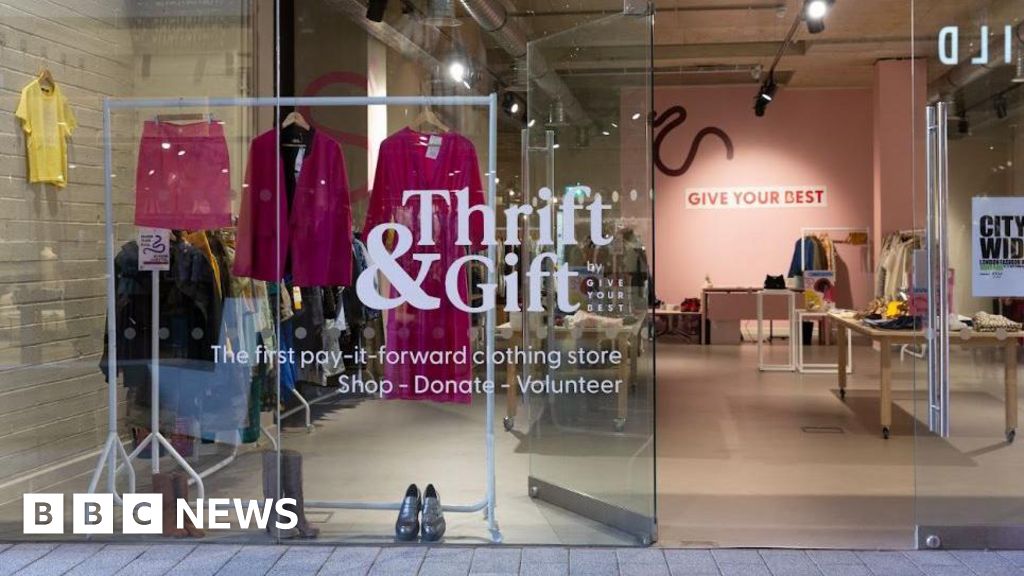
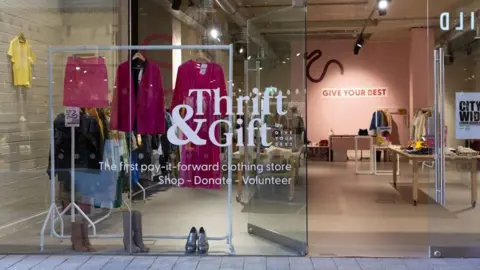 British Fashion Council
British Fashion CouncilAs Londoners join a growing number of people buying buy more sustainable gifts this Christmas, what is thought to be the first “pay it forward” second-hand clothing store in London hopes to give back with a difference.
At the Give Your Best Thrift & Gift shop in Islington, everything purchased is converted into credits for those they help, including refugees, women fleeing domestic violence and care leavers.
These clients are then able to spend the credits in store to get free clothes while having a shopping experience that offers them more agency.
Among them is Kemi Ogunlana, 40, a refugee from Nigeria, who told BBC London the scheme “gives you more self-confidence, to love yourself back”.
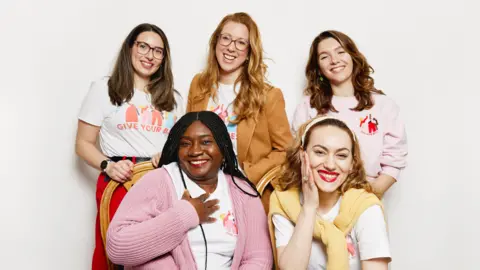 Emily Lavarello/Give Your Best
Emily Lavarello/Give Your BestMs Ogunlana said she initially got in touch with Give Your Best in 2020 when she didn’t have any clothes for a job interview and was prepared to accept whatever had been donated.
She said with many charity clothing parcels “you don’t have the right to choose” what you are given, but to her surprise Give Your Best “asked me what’s my style, what do I like wearing, what’s my size” and brought her three different outfits to wear to the interview.
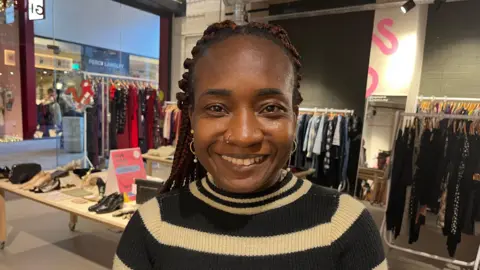
The pay-it-forward concept resonated with her so much she went on to volunteer at the Give Your Best shop. She is now their first paid employee and she and her children still use credits to shop in the store.
“When you wear clothes it brings out the real you. If you wear clothes you don’t feel comfortable with, maybe you don’t feel you belong,” Ms Ogunlana continued.
“Especially from an African background they look at your dress, they address you (based on) the way you dress.
“For me to be able to wear something where I feel this is actually how I want people to address me, it made me feel so proud of myself,” she said.
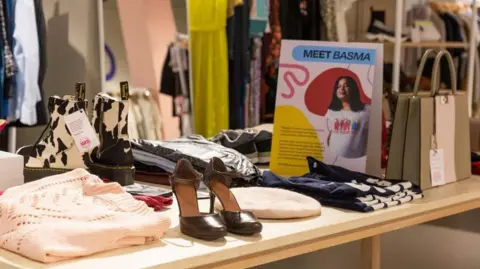 British Fashion Council
British Fashion Council“When somebody buys the clothes you are making it possible for another person, the people we are supporting, to have means to come into the shop,” Ms Ogunlana added.
She said that for clients it meant their “dignity is protected” because “people feel you are shopping the clothes yourself, like any other customer”.
“It gives you more self-confidence, to love yourself back.”
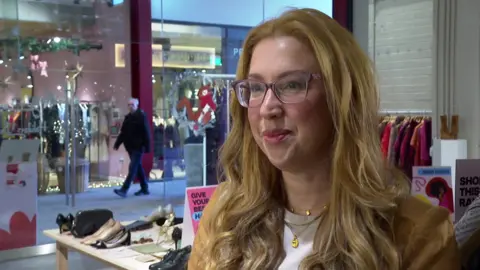
The impact on the community is something founder and co-CEO Sol Escobar said was central to their vision for the not-for-profit scheme.
“We want to really offer a very inclusive retail experience where if someone can afford the clothes they can buy it, and if someone can’t they don’t have to be treated any differently,” she said.
“Knowing that your purchase is supporting a person that needs it, we find, is one of the biggest drives for people walking into our store.”
‘So far so good’
Ms Escobar, 43, from Cambridge, was volunteering with disadvantaged women when she first launched the not-for-profit through its online service in 2020.
Since then Give Your Best has grown quickly and currently supports about 4,500 families, with 15,000 items donated to its online platform.
In the north London store, which launched in September with the help of the National Lottery’s community fund, there is a mixture of public donations and new items from brand partners such as sample sizes and excess stock.
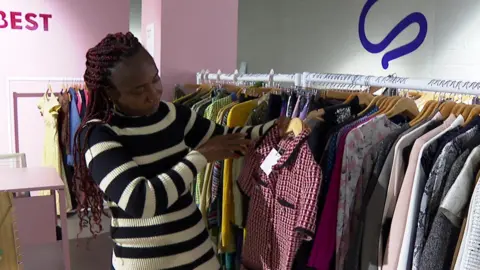
Ms Escobar said the team had been able to test the concept on the high street to see if it could “be self-sustaining long-term, and so far so good”.
So how has the concept been received by customers?
“Shopping with purpose, I think it’s something that people are doing a lot more,” she stressed.
“People are looking to, if they are going to consume, do so in a way that has a positive impact and that is mindful.”
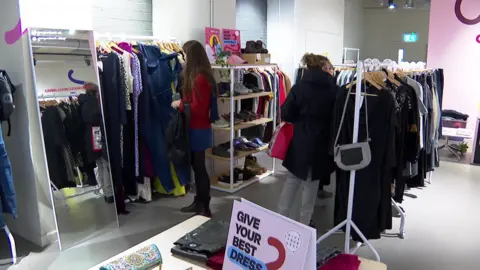
Ms Escobar’s hope is that the Thrift & Gift shop will be a springboard, allowing them to expand into menswear and eventually to other towns and cities too.
“We very much make a point of hiring people from the community that we support to make sure that we also provide employment opportunities,” Ms Escobar said.
“We are about to launch our own repair service with another grant that we’ve got from ReLondon, which is reducing waste in the city of London.”
She added: “It’s only by working together with other organisations and with more initiatives doing similar things that we can really tackle this problem, because it’s too big for us to tackle on our own at the moment: poverty.”
Additional reporting by Alice Salfield.










